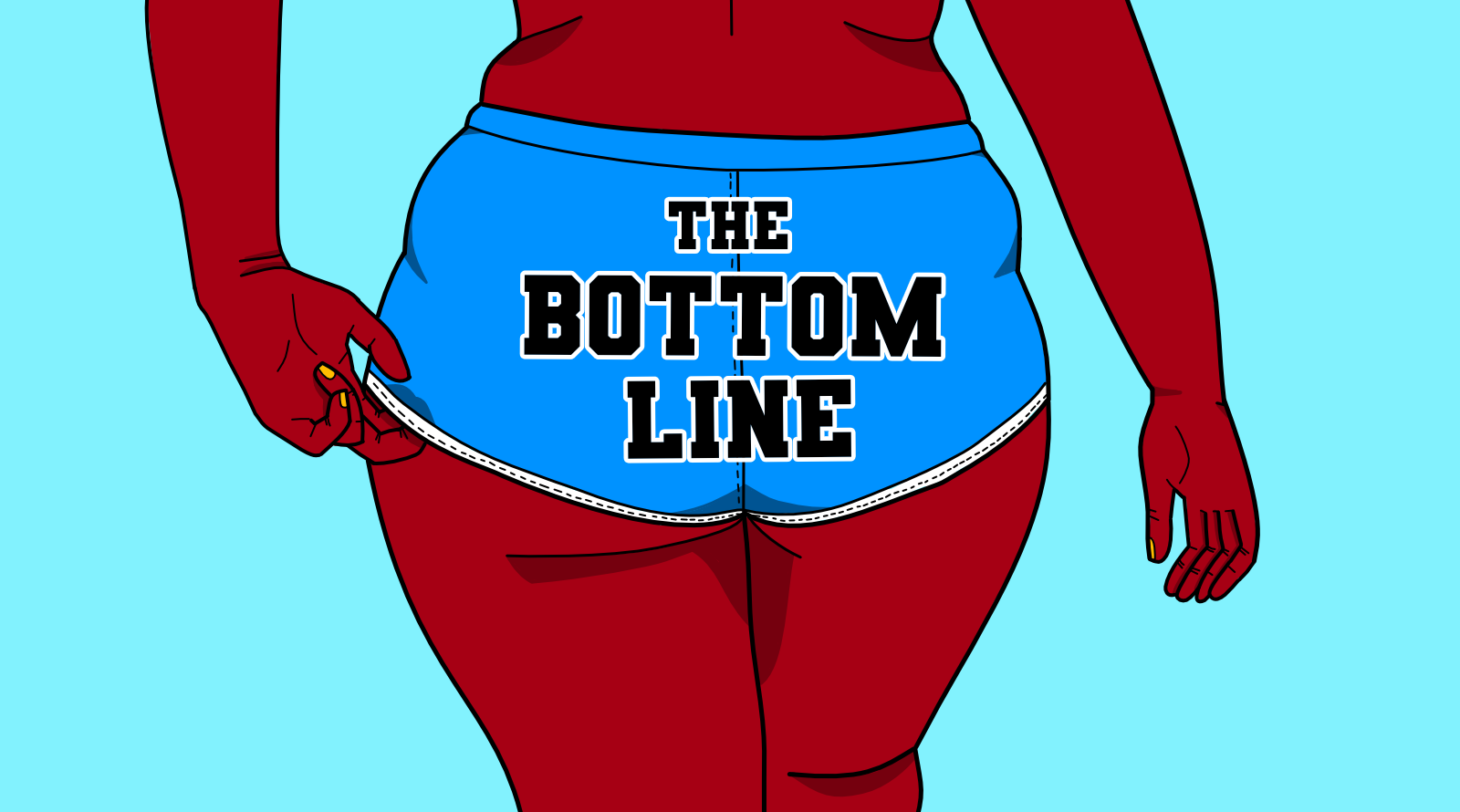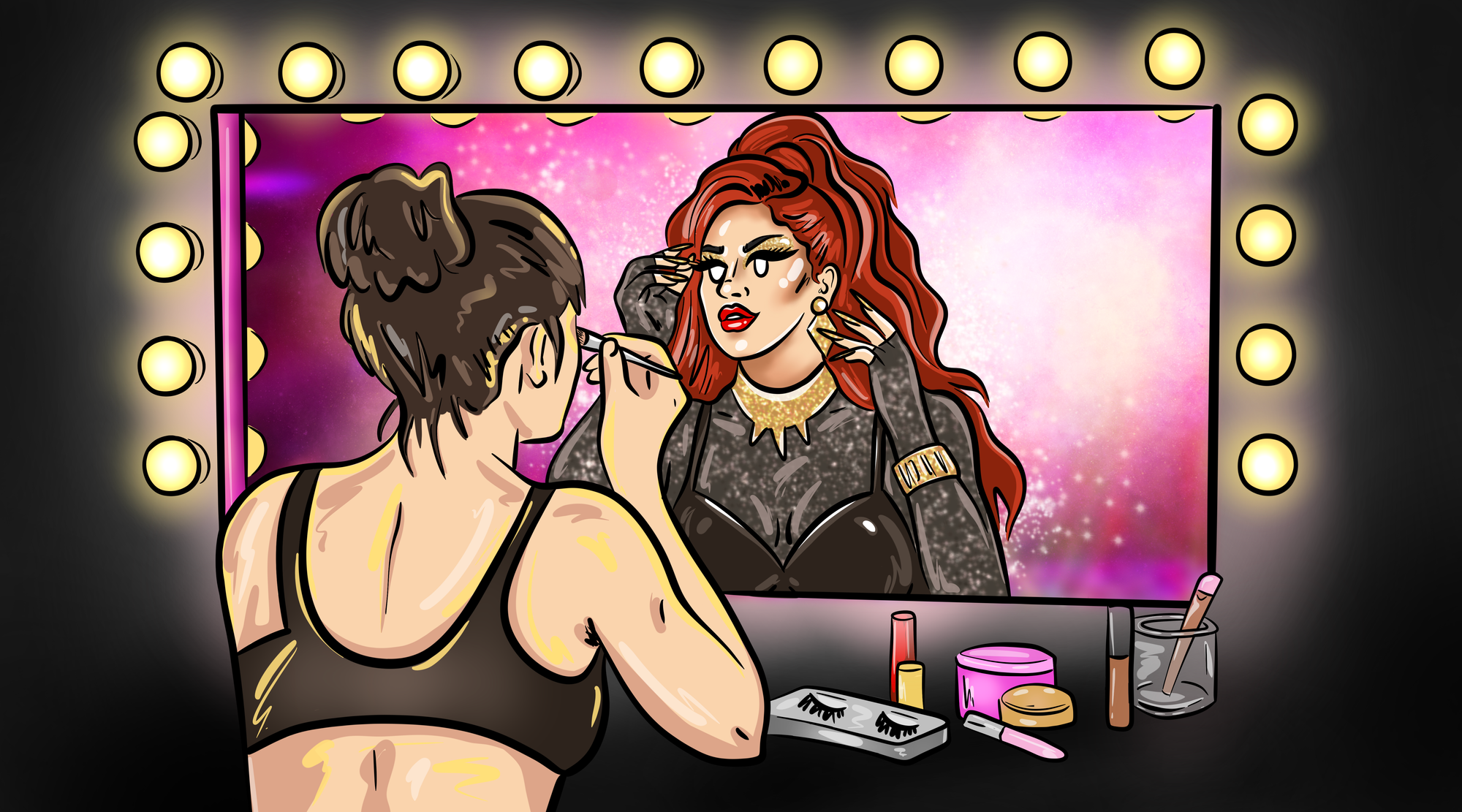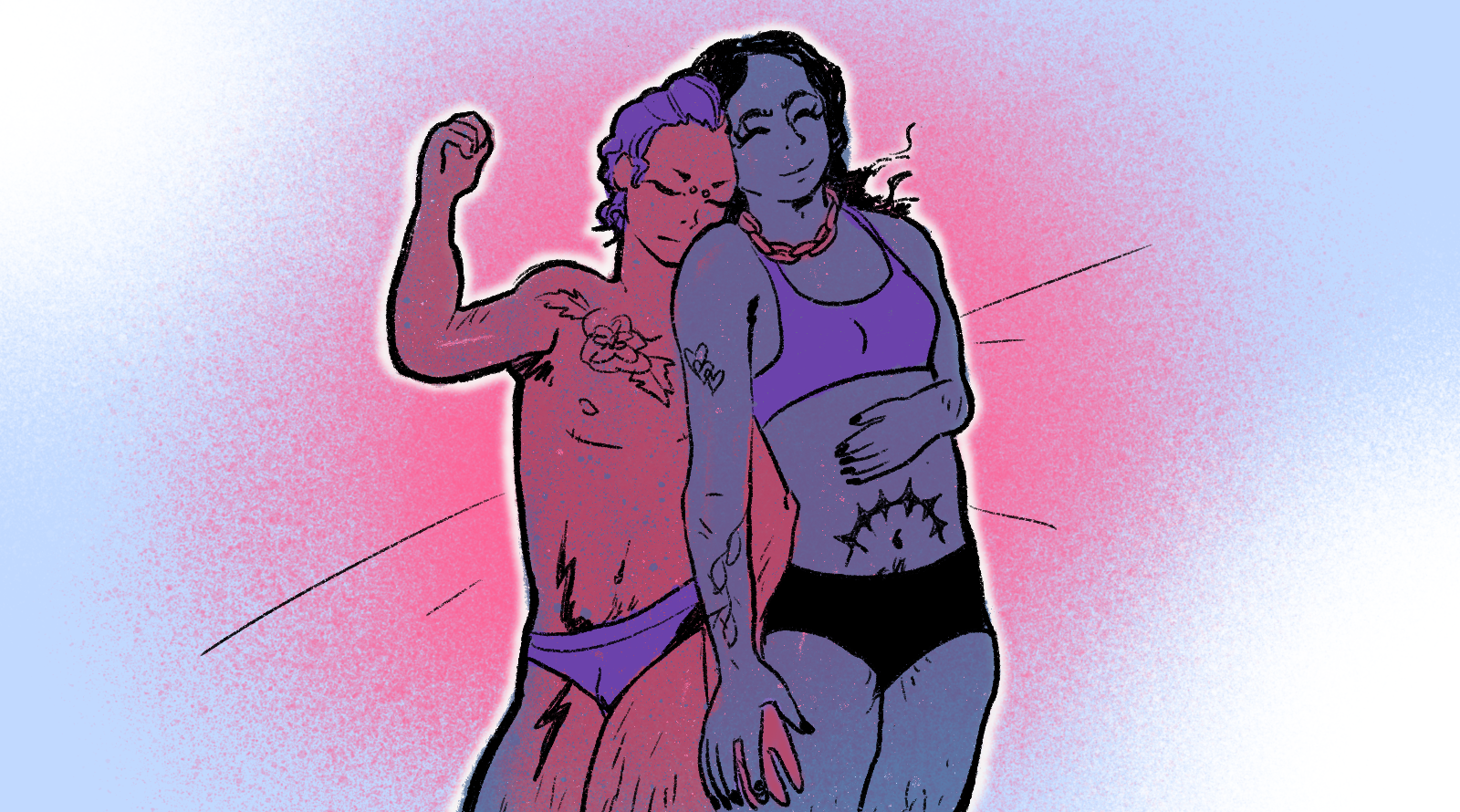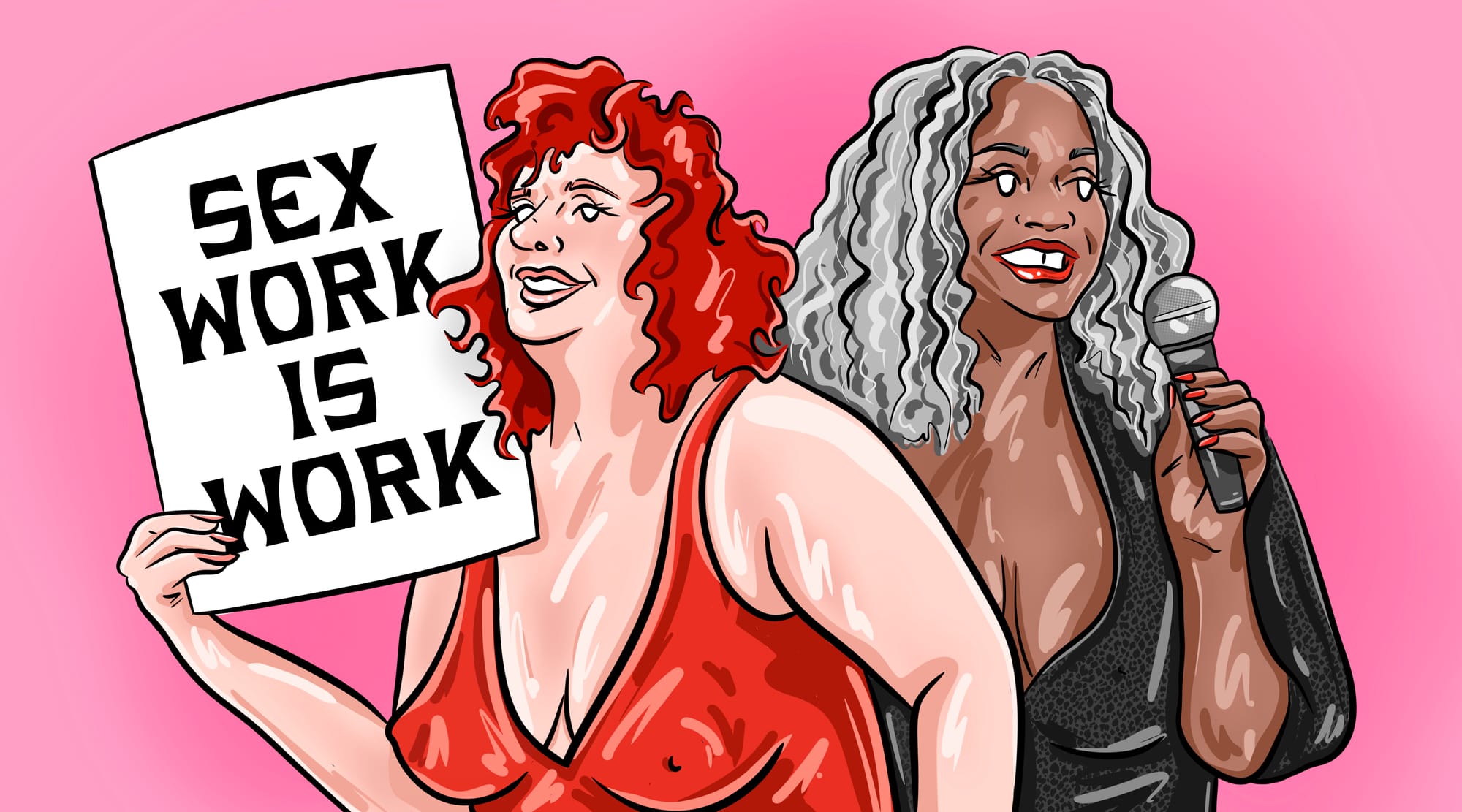CW: Homophobic language in quoted text
Takatāpui is an umbrella term that embraces all Māori with diverse gender identities, sexualities and sex characteristics including whakawāhine, tangata ira tāne, lesbian, gay, bisexual, trans, intersex and queer. I identify as takatāpui because I am queer. I am queer because my attraction to others is based on a person’s wairua (soul), and not what is between their legs. My queerness has shaped me into who I am. It impacts how I perceive the world, especially a world that is so heavily dictated by a patriarchal, colonized hierarchy. I also consider my sex work a part of my queerness, and being queer has impacted the way in which I navigate sex work.
Both queerness and sex work are demonised under patriarchy. In fact, the fear and hatred surrounding sex workers and queer people are historically linked together. American sociologist Nels Anderson stated in his 1923 book The Hobo: The Sociology of the Homeless Man, “Fairies or Fags are men or boys who exploit sex for profit.” Both queer people and sex workers challenge the assumed twogender, heteronormative binary that patriarchy and colonialism has fostered. Growing up as a woman under patriarchy was a confusing experience for me, as I did not resonate with the imposed gender roles that I was subjected to the second the doctor declared me as “it’s a girl!” I knew from a young age that I wasn’t straight. I also knew from a young age that I wanted to work in the adult entertainment industry. But society told me that because I was born a girl, I was supposed to only be attracted to men, and that men had an inherent ownership over my body that they were entitled to for free.
I am queer because my attraction to others is based on a person’s wairua (soul), and not what is between their legs.
Patriarchy conditions women into believing that we are only valuable through the approval of a romantic male partner. Compulsory heterosexuality, or comphet, is a theory that heterosexuality is assumed and enforced upon people by a patriarchal and heteronormative society. I have been a victim of comphet ideology. As I said goodbye to my childhood and entered my adolescence, my actions were suddenly being accused of coming from a place of craving male attention. It was extremely confusing and frustrating for me, because half of the time I was actually trying to impress the other girls. An extreme example of this was the time in high school when a friend of mine came out as bisexual. I texted her a few weeks later expressing that I think I may also be bisexual. She responded, “No you’re not. I think you’re just pretending to be attracted to girls so that boys will like you.” I internalized her words, believing that my sexuality was there for the validation of men. Everything I do is for the validation of men, right patriarchy?
Like my queerness, my sex work has often been accused of coming from a need for male validation. In my final year of uni I started to sell porn via a pay-to-access Snapchat, and suddenly women I had never met would message me accusing me of trying to “steal their man”. Seriously, does everything women do have to be about obtaining a man? I can’t even earn a living without being accused of trying to seek male approval! It’s hilarious to me now, because if sex work has taught me anything it’s that male validation is the least valuable thing to ever exist. It’s laughable to me that people genuinely believe that because I am a sex worker, I am desperate for male validation. As if me being a woman and a sex worker doesn’t inherently challenge that rhetoric. I put a paywall between myself and men, only giving my attention to men who pay me for it. They’re paying me to validate them. Does that sound “desperate for male validation” to you?
Like my queerness, my sex work has often been accused of coming from a need for male validation.
The accusation that my queerness and sex work both came from a place of craving male approval speaks to just how heteronormative our society is. I can’t be attracted to people outside of cis men, or charge people for access to me, without it somehow still being for the benefit of men. It doesn’t even make sense to me, which brings me back to my belief that being queer enables me to see outside of certain imposed “norms”. I can question things more easily. I was raised in a world that said being gay or being a sex worker makes you dirty, broken, sinful, or just wrong. Yet I couldn’t shame the gay out of me. I couldn’t crush the part of me that knew I wanted to be a sex worker when I grew up. The more I embraced my queerness and the longer I worked in sex work, the more I fell in love with myself. These two things that society has told me make me bad are two things that I greatly love about myself. And it’s because of that demonisation that I am so aggressively proud of my queerness and whoreness.
I love living outside of the assumed hierarchy of things. I am an unapologetically queer and sexually autonomous woman who also happens to be a sex worker. My existence alone challenges the two-gender-heteronormative-binary that I so detest. There are so many facets of myself that result in me being “othered” by society, which I feel has gifted me with a sense of enlightenment. I feel close to Divine in my otherness. I do not fit into the status quo, which I actually find to be a liberating experience. I can see that things are not fixed, nothing is linear, and stagnancy is a myth. This lens I possess as a result of my queerness has granted me certain advantages when navigating the sex work industry.
I do not fit into the status quo, which I actually find to be a liberating experience.
Firstly, I entered sex work with a strong sense of self, which I feel is a vital key to lasting in this industry. I simply did not care when people would judge me for my chosen profession, because I was so used to being told what I should and shouldn’t do with my body due to being a queer woman.
Second, I have found my queerness has helped me navigate full service sex work due to my ability to see outside of the restrictions of heteronormative sex. My queerness has granted me an ability to sense when someone is requesting a sexual service that they feel they should want due to enforced gender roles. At the start of my bookings, I like to sit down and discuss boundaries and consent with my clients. I tell them what I am and am not comfortable with doing, and I ask the same of them. As most of my clients are straight cis men, they are often shocked to be asked about boundaries. “No one has ever asked me what my boundaries are before.” A middle aged man once confessed to me with a soft and sombre voice that he had spent his life thinking that because he is a man, he had to be the assertive one in the bedroom. Through that booking with me, he discovered that he wanted to take on a more submissive role during sex. I may be having sex with a male client, but the sex can still be queer when it challenges heteronormative ideas surrounding sex. Those bookings leave me feeling as if I have made a small yet significant impact in challenging the status quo of sex.
My queerness and sex work are woven together in a kaleidoscope of beauty. This beauty belongs to me, because it comes from me. It is me. I have often wondered how different my relationship to sex work would be if I weren’t queer. Personally, I think I would have a more difficult time navigating sex work without the perspective that my queerness has gifted me. I am grateful for my queerness. I am a takatāpui sex worker, and I am proud.
Are you a sex worker with a story, opinion, news, or tips to share? We'd love to hear from you!
We started the tryst.link sex worker blog to help amplify those who aren't handed the mic and bring attention to the issues ya'll care about the most. Got a tale to tell? 👇☂️✨





